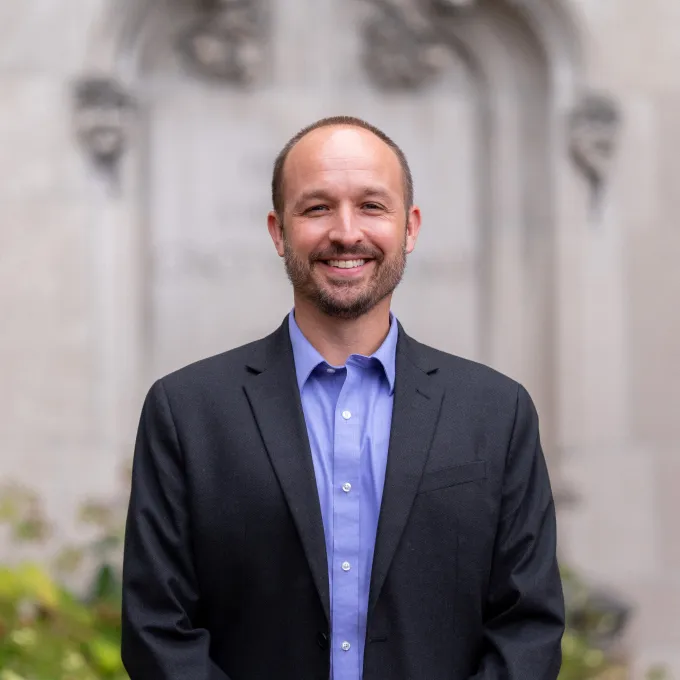Andrew Butler studies how people learn with an emphasis on how contextual factors shape the implementation of principles from the science of learning for students and teachers.
Andrew C. Butler is a Professor in the Department of Education and the Department of Psychological & Brain Sciences (by courtesy). He is also the Director of the St. Louis Translational Fellows in Education program, which trains postdoctoral researchers to conduct research using a research-practice partnership approach. He teaches courses for undergraduate and graduate students that explore the intersection between psychological science and education.
Dr. Butler is interested in the malleability of memory – the cognitive processes and mechanisms that cause memories to change or remain stable over time. More specifically, his research focuses on how the process of retrieving memories affects the content (e.g., events, specific details, narrative structure, etc.) and phenomenological characteristics (e.g., confidence, emotional intensity, vividness, etc.) of those memories. Under this broad conceptual umbrella, he studies a variety of different topics and phenomena, including higher-order learning, error-correction / knowledge revision, self-regulation of learning, the interplay between learning and motivation, and event memory, among others. His is particularly interested in understanding how contextual factors (e.g., knowledge domain, individual differences, time scale) influence these phenomena. His research addresses both theoretical issues in psychological science and practical applications to education (as well as other applied areas). He utilizes many different methodological approaches in his research (quantitative, qualitative, mixed methods, experimental, experience sampling, longitudinal, etc.) and collects data in a variety of different contexts (laboratory, classroom, online crowd sourcing, educational technology, secondary datasets, etc.). When designing, conducting, and communicating research, he considers equity, diversity, and inclusion to work towards ending systemic racism and other forms of bias that exist in psychological science as well as education research and practice. He also values transparency and reproducibility, and he is committed to open science practices.
Dr. Butler’s research has been published in top journals in his field, including Educational Psychology Review, Journal of Educational Psychology, Journal of Experimental Psychology: Learning, Memory, and Cognition, Nature Reviews Psychology, Psychological Science, and Trends in Cognitive Sciences. His research has been supported by over $8 million in grants from funders, including the James S. McDonnell Foundation, the Spencer Foundation, and the National Institute for Mental Health. He is a Fellow of the Association for Psychological Science and the Psychonomic Society. Dr. Butler has also won awards for his research (e.g., J. Don Read Early Career Award from the Society for Applied Research in Memory and Cognition) and his teaching (e.g., Emerson Excellence in Teaching Award). He has served as an Associate Editor for Journal of Applied Research in Memory and Cognition and on numerous editorial boards for top journals in his field, such as Educational Psychology Review, Journal of Educational Psychology, and Journal of Experimental Psychology: Learning, Memory, and Cognition. He has also served as the Chair and the Director of Graduate Studies for the Department of Education. His broader service within the university often focuses on innovation in policy and practice regarding teaching and learning, a topic about which he is extremely passionate.
